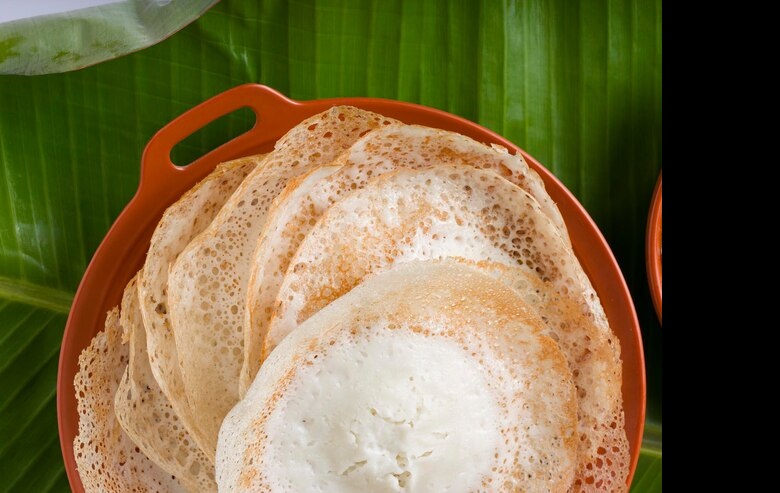Appam and Mutton Stew for Breakfast Bliss

Kerala, often referred to as “God’s Own Country,” is a land that captivates the senses with its rich cultural tapestry, lush landscapes, and diverse culinary treasures. Among the myriad of delightful dishes that grace the breakfast tables of Keralites, the combination of Appam and Mutton Stew stands out as a gastronomic masterpiece. This culinary pairing has become synonymous with the perfect Kerala breakfast, captivating the hearts and palates of locals and visitors alike.
Cultural Significance:
To understand the love for Appam and Mutton Stew, one must first appreciate the cultural nuances that shape Kerala’s culinary landscape. Kerala’s cuisine is a harmonious blend of indigenous flavors, shaped by its geography, history, and the diverse communities that call it home. The state’s unique geographical features, with its coastal stretches, fertile plains, and lush hills, contribute to an abundance of fresh and diverse ingredients.
Appam, a type of fermented rice pancake, is a culinary gem that reflects the resourcefulness of the people of Kerala. Its spongy centre and crispy edges are achieved through the fermentation process, which imparts a distinct sourdough-like flavour. Mutton Stew, on the other hand, is a creamy and aromatic concoction of succulent mutton pieces bathed in a coconut milk-based gravy. The marriage of these two dishes creates a symphony of textures and tastes that resonates with the rich cultural fabric of Kerala.
Historical Roots:
The history of Appam and Mutton Stew can be traced back to the diverse cultural influences that have shaped Kerala over the centuries. Kerala’s spice trade routes brought in flavours from Arab, Chinese, and European cuisines, creating a unique fusion that defines its culinary identity. The use of coconut, a staple in Kerala cuisine, adds a distinctive sweetness to the dishes, while the subtle spicing showcases the influence of Arabian traders.
Appam’s origin can be linked to the Syrian Christian community in Kerala, who are believed to have introduced this fermented rice pancake. With their culinary legacy, the Portuguese further influenced the preparation method by incorporating coconut milk into the batter. Mutton Stew, with its blend of spices and coconut milk, represents the amalgamation of indigenous ingredients with foreign culinary techniques.
Sensory Pleasures:
The sensory experience of enjoying Appam and Mutton Stew goes beyond mere sustenance; it is a celebration of flavours, aromas, and textures. The visual appeal of a stack of lacy Appams, resembling delicate lace doilies, paired with the rich, creamy Mutton Stew creates an enticing tableau on the breakfast table.
The first bite into an Appam reveals its unique texture – a perfect balance between soft and crispy. The subtle tanginess from the fermentation process enhances the flavour profile, providing a delightful contrast to the richness of the Mutton Stew. The mutton slow-cooked to perfection, absorbs the fragrant spices and coconut milk, resulting in tender, flavorful bites that linger on the palate.
Breakfast Rituals and Social Bonding:
In Kerala, breakfast is more than just a meal; it is a ritual that fosters social bonding and strengthens community ties. The act of breaking bread, or in this case, tearing into a piece of Appam and dipping it into the velvety Mutton Stew, is a communal experience that transcends generations.
Families gather around the breakfast table, sharing stories, laughter, and the simple joy of savouring a well-prepared meal. The aroma of Appam and Mutton Stew wafting through homes in the early morning becomes a sensory beacon, drawing family members together for a wholesome start to the day. , if Keralites go anywhere in the world, they always prefer the best restaurant that serves Keralites breakfast as the primary choice.
Health and Nutrition:
Beyond its cultural and sensory allure, the combination of Appam and Mutton Stew also offers nutritional benefits. Appam, made from fermented rice, is easily digestible and provides a good source of carbohydrates. The addition of coconut milk in Mutton Stew not only enhances the flavour but also contributes healthy fats to the meal.
Mutton, rich in protein and essential nutrients, adds a nutritional punch to the breakfast. The use of aromatic spices not only infuses the dish with flavour but also brings potential health benefits, given the anti-inflammatory and antioxidant properties of many traditional spices used in Kerala cuisine.
Conclusion:
In conclusion, the love for Appam and Mutton Stew as the perfect breakfast in Kerala is a tapestry woven with threads of culture, history, sensory pleasures, communal rituals, and nutritional value. This culinary symphony is a testament to Kerala’s ability to blend tradition with innovation, creating dishes that stand the test of time.
As the morning sun bathes the picturesque landscapes of Kerala, the breakfast tables adorned with Appam and Mutton Stew become a canvas where the past and present converge, offering a taste of the rich and diverse heritage that defines this enchanting region. The love for this breakfast duo is not just about satisfying hunger but about indulging in a cultural journey that unfolds on every plate, celebrating the artistry of Kerala’s culinary traditions.











